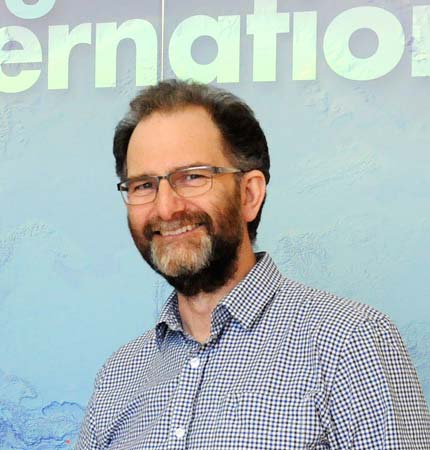ARIA Greenland Ice sheet to AtlaNtic Tipping points from ice loss
The North Atlantic Subpolar Gyre – a system of ocean currents crucial to regulating climate patterns across Europe and beyond – faces potential disruption as freshwater from the melting Greenland Ice Sheet enters the ocean system. This provides the potential for a tipping point (a critical threshold in the Earth system) that could lead to significant, rapid and potentially irreversible changes. These may include significant changes to Europe’s climate and weather patterns, increased flooding risks from global sea-level rise, depletion of vital fish stocks around Greenland, and widespread disruption to the global ocean circulation system. Despite its importance, the mechanisms by which Greenland’s melting glaciers interact with the North Atlantic
ocean remain chronically understudied, primarily due to the challenges of conducting research in ice-choked fjords.
Our approach:
GIANT is using a multi-disciplinary approach to address these critical knowledge gaps:
· Advanced observation systems: the team will deploy an innovative fleet of ocean, ice and airborne platforms in East and North-West Greenland to collect unprecedented data on glacier melting and iceberg calving processes
· Physical modelling: these new observations will be incorporated into sophisticated computer models of glacier melting and calving to improve our understanding of these complex interactions
· Artificial intelligence: AI technologies will be used to analyse complex data and improve predictions
· Global climate modelling: GIANT will incorporate Greenland melting and calving processes into the UK Earth System Model to improve climate predictions
· Early warning framework: a prototype early warning system will test the predictability of potential tipping-point thresholds in this region
Impact:
GIANT’s work extends far beyond research. By improving our understanding of how the Greenland Ice Sheet interacts with the North Atlantic, the project will:
- Provide crucial data for climate adaptation planning
- Support evidence-based policy interventions
- Help safeguard communities and ecosystems that depend on the ocean
- Contribute to global efforts to monitor and respond to climate tipping points




